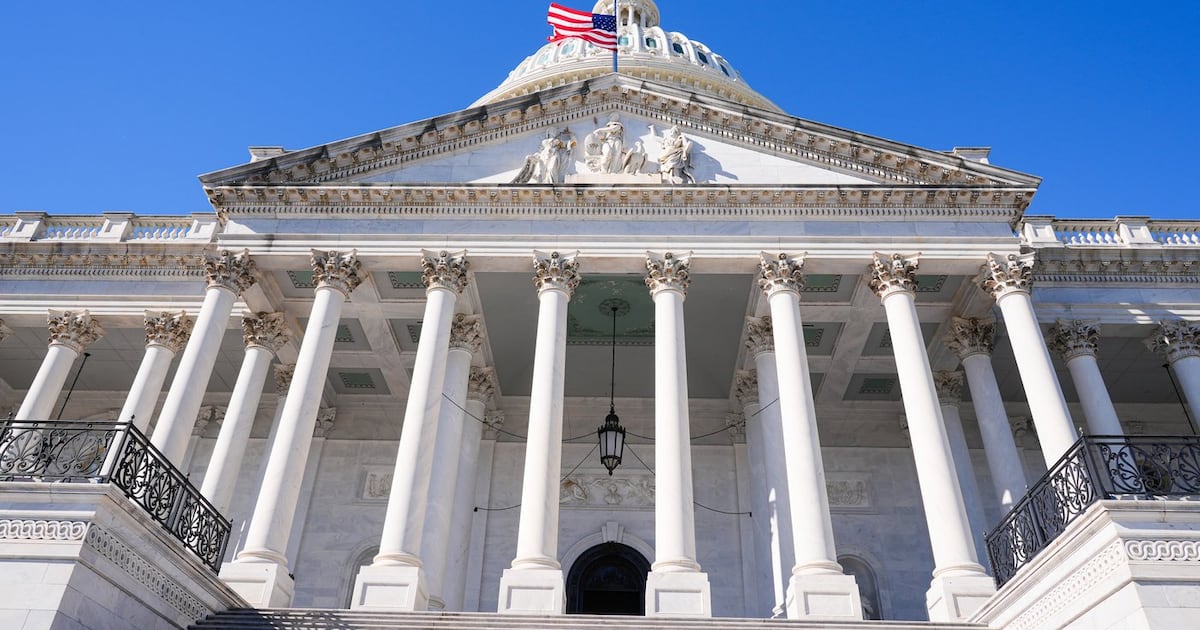Top Stories
U.S. Senate Passes Bill to End Historic 41-Day Government Shutdown

UPDATE: The U.S. Senate has just passed critical legislation to reopen the government, effectively bringing the historic 41-day shutdown closer to an end. A decisive 60-40 vote was achieved after a small group of Democrats broke ranks to strike a deal with Republicans, despite fierce opposition from within their own party.
This urgent development comes as the House of Representatives, which has been on recess since mid-September, prepares to reconvene and vote on the legislation. House Speaker Mike Johnson is calling for lawmakers to return to Washington “right now” to address the ongoing delays affecting federal services and workers.
The Senate’s decision marks a significant conclusion to a grueling stalemate that began on October 1, 2023. The shutdown has severely impacted federal services, causing delays in food aid and affecting hundreds of thousands of unpaid federal workers. President Donald Trump expressed his support for the bill, stating, “we’re going to be opening up our country very quickly.”
The breakthrough followed intense negotiations led by Senators Jeanne Shaheen, Maggie Hassan, and Angus King, who agreed to advance bipartisan spending bills and extend government funding until late January. In exchange, Republicans have promised a Senate vote on health care subsidies by mid-December, although many remain skeptical about this commitment.
Senator Shaheen stated, “this was the option on the table” after weeks of inaction. The legislation also includes provisions to reverse mass layoffs of federal workers initiated by the Trump administration, ensuring that federal employees will be compensated once the government reopens.
Despite the breakthrough, many Democrats voiced their discontent over the vote. Senate Democratic leader Chuck Schumer criticized the decision, stating he could not “in good faith” support it after discussions with his caucus. He emphasized that Democrats will not relent in their fight for affordable health care.
The implications of this vote extend beyond immediate funding. The political landscape surrounding health care will be crucial as both parties gear up for the promised vote on subsidies. Speaker Johnson has not committed to bringing the health care measure to the House floor, highlighting the uncertainty that looms over future negotiations.
As this situation continues to develop, lawmakers are under pressure to address the needs of millions of Americans who depend on government services and health care support. With the Senate set to return to discuss health care, all eyes will be on how both parties navigate this contentious issue.
This is a developing story. Follow us for real-time updates as the situation unfolds.
-

 World4 months ago
World4 months agoScientists Unearth Ancient Antarctic Ice to Unlock Climate Secrets
-

 Politics4 days ago
Politics4 days agoSecwepemc First Nation Seeks Aboriginal Title Over Kamloops Area
-

 Entertainment4 months ago
Entertainment4 months agoTrump and McCormick to Announce $70 Billion Energy Investments
-

 Lifestyle4 months ago
Lifestyle4 months agoTransLink Launches Food Truck Program to Boost Revenue in Vancouver
-

 Science4 months ago
Science4 months agoFour Astronauts Return to Earth After International Space Station Mission
-

 Technology2 months ago
Technology2 months agoApple Notes Enhances Functionality with Markdown Support in macOS 26
-

 Top Stories1 month ago
Top Stories1 month agoUrgent Update: Fatal Crash on Highway 99 Claims Life of Pitt Meadows Man
-

 Sports4 months ago
Sports4 months agoSearch Underway for Missing Hunter Amid Hokkaido Bear Emergency
-

 Politics3 months ago
Politics3 months agoUkrainian Tennis Star Elina Svitolina Faces Death Threats Online
-

 Politics4 months ago
Politics4 months agoCarney Engages First Nations Leaders at Development Law Summit
-

 Technology4 months ago
Technology4 months agoFrosthaven Launches Early Access on July 31, 2025
-

 Top Stories3 weeks ago
Top Stories3 weeks agoFamily Remembers Beverley Rowbotham 25 Years After Murder




















